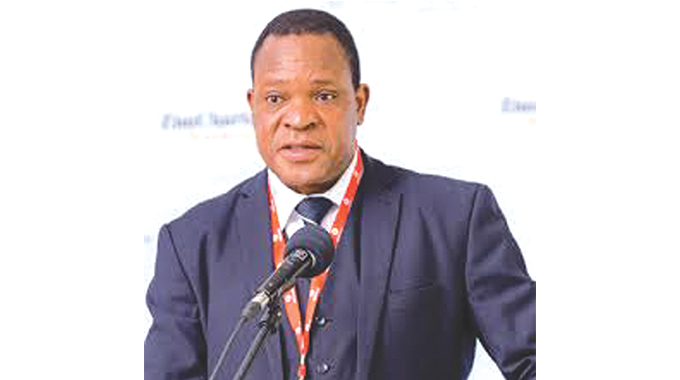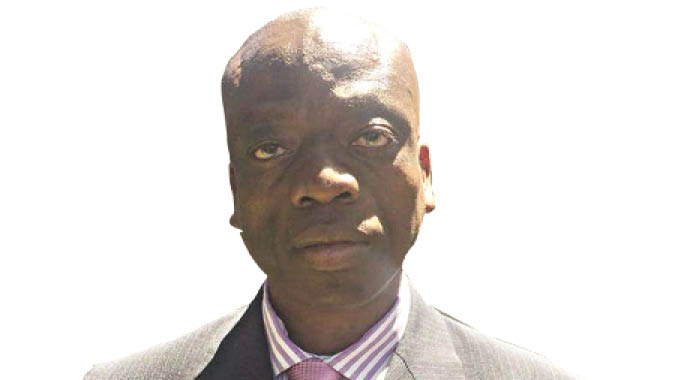Govt sets timeline for Agribank restructuring completion

Patrick Chitumba, Midlands Bureau Chief
THE restructuring of Agribank Zimbabwe into a Land Bank, which will provide investment support for A1, A2 and small-scale commercial, is on course and is expected to be completed by end of next month, a Cabinet Minister has said.
The Government approved the proposal to reconfigure Agribank (Pvt) Limited (Agribank) into a Land Bank to take up the functions of its immediate predecessor, the Agriculture Finance Corporation (AFC).
These include advancing short-term, medium-term and long-term agricultural loans to farmers.
The transformed bank will be called the Land and Agricultural Development Bank of Zimbabwe and the restructuring is aimed at supporting the country’s Agriculture Recovery Plan, which is aimed at ensuring food self-sufficiency for the country.
This is in view of the fact that agriculture, among other productive sectors, is crucial in realising Vision 2030 owing to its contribution to the economy and to national security.
The establishment of vibrant and diversified rural financial services, which are underwritten by a Land Bank or its equivalent will be an important step, which the country should take in order to move towards upper middle-income status.
This is in view of the realisation that smallholder farmers comprising Communal, Old Resettlement, Small-Scale Commercial and A1 farmers constitute 99 percent of the farming population, holding up to 95 percent of the productive land and owning over 90 percent of the national livestock herd.
The Land Bank will strengthen and diversify existing agricultural and rural financial services for sustainable agrarian reform for accelerated development.
In an interview Lands, Agriculture, Water, and Rural Resettlement Minister Dr Anxious Masuka said the restructured bank is expected to offer more comprehensive services.
The bank is expected to mobilise private sector finance in order to contribute to job creation, food security and social protection in rural communities.
“That’s why we have reconfigured the ministry to say it is not the responsibility of the ministry to ensure that farmers are taken from one point to the other towards this journey of achieving an upper middle-income economy by 2030.
But the whole Government approach requires that Agribank as a financier be there to offer comprehensive services to the farmers,” he said.
“And very soon by 31 March they will now be called the Land and Agricultural Development Bank of Zimbabwe and their model fits the financing of such schemes like the irrigation schemes in the country.”
Dr Masuka said the bank will also provide investment support for A1, A2 and small-scale commercial farmers who have not been supported by commercial banks.
“For example, there are 450 irrigation schemes in the country and they occupy 26 000ha, so it’s an incredible area that we must see to it that it is financed to achieve optimum production.
“The Land Bank will link currently under-utilised land to structured markets and established value chains supplying factories, supermarkets and export markets and also provide working capital for the construction of agricultural infrastructure as well as for value addition and beneficiation enterprises,” he said.
Agribank executive director, retail banking and agricultural development, Mr Francis Macheka, said the bank will cater for farmers including those who are currently deprived of commercial financial services.
He said the new land bank will be considered as a development finance institution that will cater for small farmers.
“Why the Land Bank? The Land Bank is considered to be a development finance institution. You see what we have now is we have small holder farmers who under normal circumstances when we consider a commercial bank, they might not be considered very efficiently.
“So, we therefore want an institution, which is tolerant to the development needs of the small holder farmers and this land bank is expected to do that,” said Mr Macheka.
He said there are a lot of things that commercial banks ask for from farmers before they approve their loans, which ordinary farmers don’t meet.
“There are a lot of things that banks ask for when they want to finance people and some of them for small farmers, they might not meet them so we have a bank that is a development one and is able to structure needs for a smallholder farmer. We want an institution that is tolerant to such farmers,” said Mr Macheka.












Comments